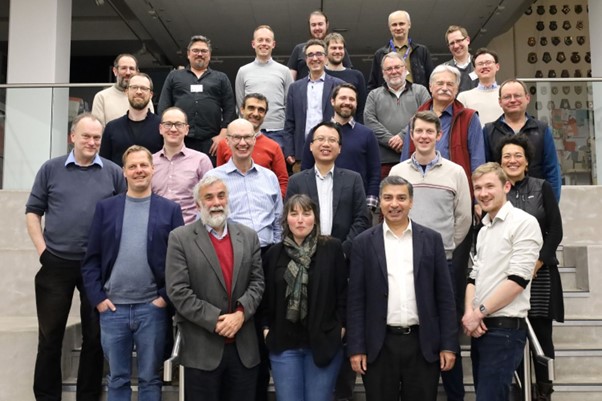Momentum is building around the UK XFEL project, which is staging a series of Townhall meetings around all parts of the UK to engage the community in plans for access to next-generation XFEL capability. It is envisaged that a next-generation XFEL would deliver a step-change increase in the number of simultaneous experiments, together with developments to enhance the already unique capabilities of XFELs. These Townhall meetings set out to discuss the details of these capabilities along with the possible science that could be carried out on such a facility, it has therefore been important that the meetings encompass a wide spectrum of the scientific and industrial community, not just those who currently use XFELs. To develop this idea, and promote discussion, a number of non-XFEL users have already been invited to talk about how they could use such a next-generation XFEL.

Led by the Science and Technology Facilities Council, the UK XFEL project is now a year into a three-year Conceptual Design and Options Analysis, supported by the UK Research and Innovation Infrastructure Fund. By the end of 2025 the project team will have evaluated the conceptual design of a new facility based in the UK, as well as assessing alternative options for UK users gaining access to next-generation XFEL capabilities by investing at existing international facilities.
Each Townhall meeting is a two-day event, starting with an opening talk aimed at giving an overview of the project, updates on the facility design and a review of XFEL science, before moving on to more focused science and technology themes. The series started in June 2023 at Queen’s University Belfast, with a focus on the frontiers of measurement technology. This was followed by an event at the University of Strathclyde, Glasgow, in October focused on materials, chemistry and biology at extreme conditions.
The latest event was held at the University of Plymouth in January 2024, to discuss the benefits that a next generation XFEL could bring to quantum computing, AI applications and fundamental physics. With these themes, it was a fitting first international meeting to be held in Plymouth’s brand new Babbage building, named in honour of Charles Babbage for his transformative breakthroughs in computing. As at both previous Townhalls, there was a vibrant set of talks and discussions, with numerous ideas to utilise the proposed features of a next-generation XFEL, how the fundamental physics community need to engage early to help shape the design, and potential novel acceleration techniques which could be deployed at a FEL. Discussions around the data requirements of such a facility and how it can be impacted by the AI/machine learning community were also highlighted during the sessions. The first day was closed by our keynote speaker, Professor Sir Peter Knight who delivered an insightful talk explaining how the UK has recently developed a national strategy for quantum technology.
A further four Townhall events are planned for 2024, with the next being hosted by the Diamond Light Source at the Rutherford Appleton Laboratory in Oxfordshire, with a focus on Life Sciences. The project team encourages everyone interested to join either in person or online – details will be released via the project website and mailing list (https://xfel.ac.uk/).
